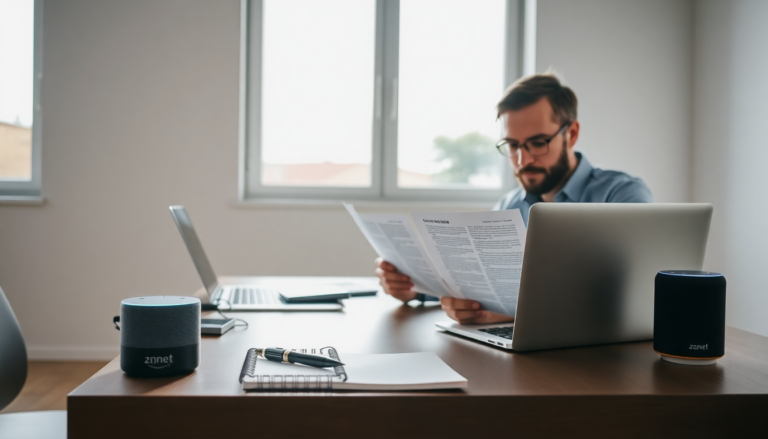Argomenti trattati
When navigating the world of technology, consumers often seek trusted advice to make informed purchasing decisions. One such source is ZDNET, a platform renowned for its thorough reviews and recommendations. Their insights stem from extensive testing, research, and analysis, ensuring that readers receive reliable information about various tech products. In this article, we will explore what ZDNET recommendations entail and take a closer look at one of the standout products they’ve reviewed: the Amazon Echo Hub.
What does ZDNET recommend?
ZDNET’s recommendations are the result of a meticulous process involving hours of testing and comparison shopping. The editorial team diligently gathers data from a variety of sources, including vendor and retailer listings, as well as independent review sites. They sift through customer reviews to understand the real-world experiences of users, ensuring that their assessments reflect genuine consumer sentiment. This commitment to transparency and accuracy is further demonstrated by their policy of not allowing advertisers to influence editorial content.
Each review undergoes rigorous fact-checking, and if inaccuracies are identified, ZDNET is quick to address them. This dedication to maintaining high editorial standards showcases their priority: delivering the most reliable information for readers. When you purchase a product through ZDNET’s recommendations, they may earn affiliate commissions, but this does not affect their coverage or the prices consumers pay.
The Amazon Echo Hub: A dedicated smart home controller
The Amazon Echo Hub has emerged as a notable player in the smart home technology landscape. Priced at $130, it offers a range of bundle options to suit various needs. For many smart home enthusiasts, managing multiple devices through numerous apps can be cumbersome. The Echo Hub aims to simplify this experience by providing a centralized control panel for smart devices. Unlike other devices such as the Echo Show, which serve multiple functions, the Echo Hub is specifically designed to be a dedicated smart home controller.
With the capability to connect to a variety of smart devices via Wi-Fi, Bluetooth, Zigbee, Matter, Sidewalk, and Thread, the Echo Hub enhances the convenience of managing a smart home. Its interface is user-friendly, allowing users to categorize and access their devices easily. The 8-inch touchscreen display is particularly appealing, as it can be wall-mounted or placed on a tabletop, facilitating quick access to smart home functions.
Key features of the Echo Hub
The Echo Hub is characterized by its focus on functionality rather than additional features. It lacks the high-definition streaming capabilities and spatial audio of other Echo devices, making it purely a smart home control panel. This design philosophy is intentional, as it allows users to interact with their smart devices without distractions. The hub’s navigation is categorized, providing a clean and organized display of widgets, routines, and device categories for easy access.
Despite its strengths, some users may experience minor lag when accessing certain features, such as security camera feeds. However, the overall performance and ease of use make it a valuable addition to any smart home ecosystem. The Echo Hub integrates seamlessly with Alexa, allowing for voice commands to control compatible devices, set routines, and even check security systems.
Privacy considerations and market trends
As with any smart home device, privacy concerns are paramount. Users must weigh the convenience of products like the Echo Hub against potential privacy risks. While Amazon and similar companies assert their commitment to user privacy, the reality of data handling often remains a concern for consumers. It’s crucial for users to stay informed about how personal information is managed and to take proactive steps to secure their data.
Additionally, the recent US tariffs on imports from various countries could lead to increased prices for consumer electronics, including smart home devices. As companies consider adjusting their supply chains, consumers may need to prepare for potential price hikes on products they are interested in. The market for smart home technology continues to evolve, and consumers should remain vigilant about changes that could impact their purchasing decisions.

